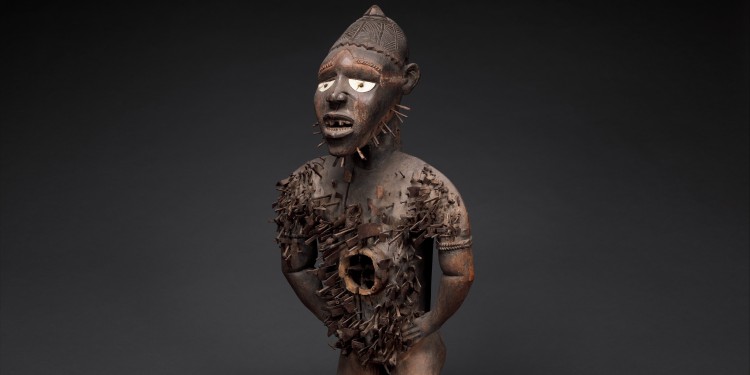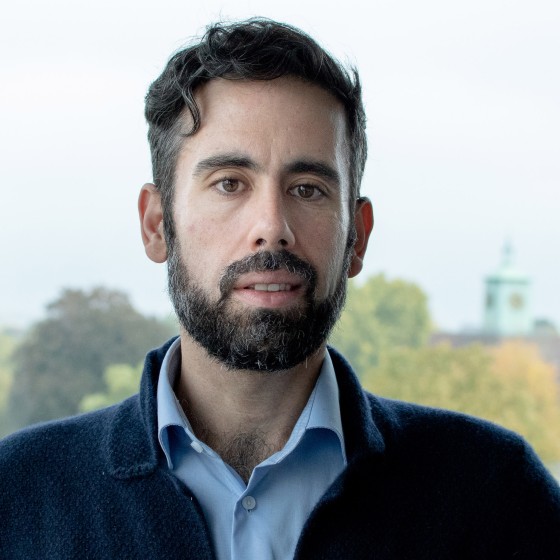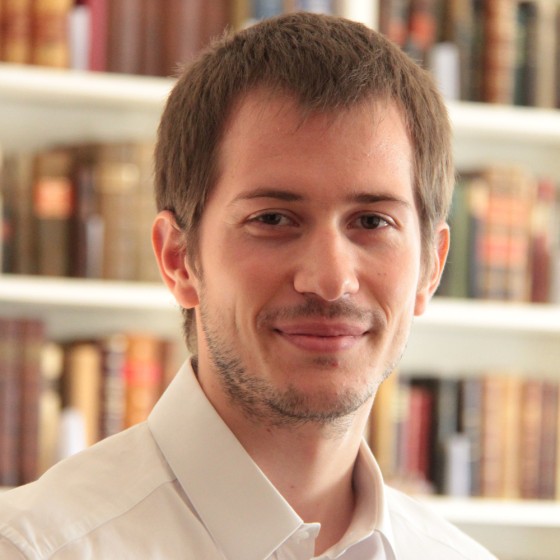
“Europe is discussing with itself”
Handing back cultural artefacts which have a colonial provenance has long been an object of public debate. There have occasionally been heated disputes over the fact that objects such as the Luf boat from New Guinea and the Benin Bronzes are held in European collections. At the Universities of Münster and Vienna a project entitled “Forensics of Provenance: Colonial Translocations through the Lenses of Legal Pluralism” is looking into new approaches to handling cultural treasures. In this interview with Lennart Pieper, the historical anthropologist Dr. João Figueiredo, a research associate at the Käte Hamburger Kolleg “Legal Unity and Pluralism”, and legal historian Dr. Sebastian M. Spitra, a former fellow, discuss the opportunity to make a contribution to a better understanding of communities of origin and their pluralistic legal systems.
In public debate today there is a strong focus on certain objects and on the question of whether to return them or not. Often, an attempt is made to judge whether the appropriation of these objects was legal or illegal according to the law of the time. Is this an appropriate approach to take?
João Figueiredo: If you frame the question that way, you are already making a few assumptions. Our aim is to uncover the tacit presumptions present in public debate. For example: are we really talking about objects here? Not all communities and cultures agree on where the borderlines are between subjects and objects or between nature and culture. What we in the western world see as being artefacts, animals or landscapes which have no personality or power of their own to act, are often categorised quite differently by other communities based on different conceptions of existence or world views.
Sebastian M. Spitra: It’s similar with the question of the legality of taking objects away. When we talk about the law of that time, why do we only ever proceed from European law? Many colonial areas had widespread legal systems – and imposed not only by the colonisers but primarily, naturally, by the indigenous population. It is this legal pluralism that we are focusing on. In doing so, we are also opposing the notion that before the Europeans arrived, the colonies were a legal no-man’s land.

How can we today reconstruct the legal conceptions of those times?
Spitra: When it’s a question of European conceptions of the law, the first step people take is to look at the international treaties of the time to see what was allowed and what was forbidden. But it’s not that simple. Are colonised peoples subjects, thus having rights and obligations in international law – or not? Is it actually possible to talk about matters of international law when something happens in a colonial area – or are they domestic issues? Very little was regulated by treaties, so, in looking for sources, people often fall back on the international law doctrine that was valid at the time. But academic debates are often full of contradictions and not infrequently politically charged …
Figueiredo: And matters are naturally even more difficult in the case of the legal conceptions which colonised people had. Sometimes the original communities are dispersed and they have lost any knowledge about legal practices in earlier times. In other cases, the only available reports come from the European colonial administrators or Muslim travellers, and these reports are problematic as sources due to the distorted views they contain. So it seems to me that the best approach to take is to work in archives and with the original communities.
Your argument is that the removal of cultural objects also destroyed indigenous legal infrastructure.
Figueiredo: All legal systems, including the European ones, have a material basis. Take for example courthouses, court records, legal literature. If this infrastructure is removed, or even destroyed, then the legal system is also destroyed. And not all material elements in a legal system are of a textual nature – for example, border markings, or units of length and time. Some of the objects which the Europeans were most interested in translocating were precisely those which counteracted their rules regarding property or their colonial interests.
Spitra: That includes playing down the legal significance and relevance of this legal infrastructure and dismissing it as religious practice, fetish or superstition. As a legal historian I was astonished that anthropologists had hardly considered this legal dimension in the debate on restitution.
Figueiredo: In my opinion that is due to the fact that when anthropologists started to be interested in examining legal pluralism, most of these material elements had already been removed from their legal context and catalogued as works of art or ethnographical objects in western museums. This removal still determines the conditions governing the debate.

You have organised an international conference on this matter to take place in early February, with participants from Asia, Africa, the Pacific region and the Americas, i.e. from settlers’ colonies or former colonised areas. Was too little notice taken of their voices up to now?
Spitra: I see public discussions about restitution in Europe as a debate with itself. It’s more a question here of Europeans looking after their own moral identity than of any honest interest in coming to terms with a violent past and its trail into the present.
Figueiredo: This kind of self-centredness is not particularly fruitful in an academic sense, either. The way the conditions for participation in the debate are publicly framed, we not only exclude participants with other backgrounds and political priorities, we also refuse to allow their responses to be incorporated into our methods. Our workshop creates the conditions for these voices to have a greater influence – on academic debates, as well as on future international politics.
The Käte Hamburger Kolleg “Legal Unity and Pluralism”
The Käte Hamburger Kolleg “Legal Unity and Pluralism” (EViR) at the University of Münster has been funded by the Federal Ministry for Education and Research since 2021. Fellows from all over the world, together with scholars from Münster, examine the dynamic tension between legal unity and pluralism from antiquity to the present. This is the first attempt to systematically investigate the phenomenon in its entire historical depth and across disciplinary boundaries.
This article is from the university newspaper wissen|leben No. 1, 31 January 2024.
